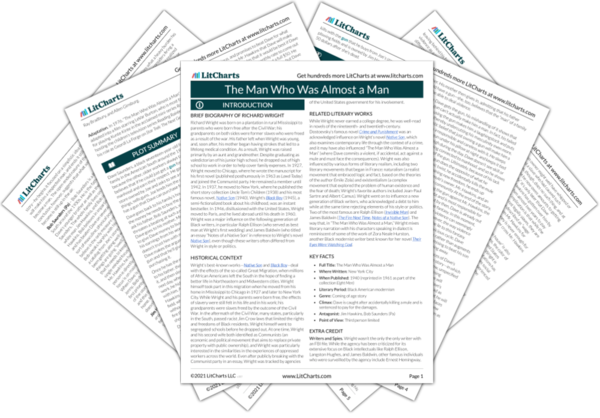In 1865, the Union enacted an order to provide some freed former slaves with “40 acres and a mule,” with the idea that these freed families would then be able to own the land they were once enslaved to work, and support themselves. In other words, it was a promise not just of legal freedom, but also of economic self-control. This promise went unfulfilled. After the war, President Andrew Johnson explicitly reversed the “40 acres and a mule policy,” and throughout the South racist Jim Crows were instituted that restricted both the rights and economic prospects of Black Americans.
In “The Man Who Was Almost a Man,” Jenny the mule references the stolen promise of Black political and economic freedoms. Jenny is owned not by any of the Black farmworkers, but rather by the white plantation owner Mr. Hawkins. While Mr. Hawkins himself does not come across as overtly cruel, what the story makes clear is that he does not have to be in order to control his Black workers, because he exerts economic control over them. He controls their pay, and he controls the resources that allow the workers to do their jobs. When Dave accidentally kills Jenny, Mr. Hawkins can act “kindly” and “fairly” by putting Dave into a debt that will take more than two years to repay. Jenny the mule, therefore, in both life and death, comes to represent the Jim Crow system in the South that ensured that Blacks would always end up at the bottom, regardless of what happens.
Jenny the Mule Quotes in The Man Who Was Almost a Man
Then he saw the hole in Jenny’s side, right between the ribs. It was round, wet, red. A crimson stream streaked down the front leg, flowing fast. Good Gawd! Ah wuzn’t shootin at the mule.
Somebody in the crowd laughed. Jim Hawkins walked close to Dave and looked into his face.
“Well, looks like you have bought you a dead mule, Dave.”
“Ah swear fo Gawd, Ah didn go t kill the mule Mistah Hawkins!”
“But you killed her!”
Nobody ever gave him anything. All he did was work. They treat me like a mule n then they beat me.












